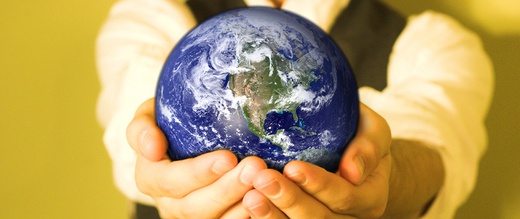The views expressed in our content reflect individual perspectives and do not represent the authoritative views of the Baha'i Faith.
Who doesn’t want to be admired, or wealthy, or worshipped?
Each of us has an innate desire to be known, appreciated, recognized and loved. But for what purpose?
The purpose of the creation of man is the attainment of the supreme virtues of humanity through descent of the heavenly bestowals. The purpose of man’s creation is, therefore, unity and harmony, not discord and separateness. – Abdu’l-Baha, The Promulgation of Universal Peace, p. 4.
We are born with an innate sense of self, of being, of egoism. That sense of self motivates us to become something, or someone, worthwhile. It’s also why we, most of us, return the love and kindness shown to us by friends and parents and coworkers and even strangers.
But what of that childhood, the environment in which we lived and matured? Did we live peacefully, or did we struggle? Did we have full, loving parental guidance, or not? Did we have despicable parents or were we wild orphans? Did we either learn to be civilized and polite as children, or were we unruly, constantly acting out?
Those lucky enough to have had a nurturing environment when young ought not to condemn or misunderstand the search for self by those untrained or unschooled in the virtues Abdu’l-Baha speaks of—virtues and morals such as courteousness, caring, trustworthiness, fairness, hope for better things and a better life, self-confidence and an appreciation for others and their condition. What if we feel alone, isolated, hurt by the world’s cruelties, none of which we deserved? Through no fault of their own, the impoverished children of the world, numbering almost two billion souls, are often left to their own devices to survive. Of course, we want them all to thrive—but how will they thrive?
In the absence of proper training, care and supervision, egotism and mental illness will thrive instead, as witnessed by more than 110 U.S. school shooting attacks since 2000. We mourn the twenty innocent children and six adult staff murdered by gunshots at Sandy Hook Elementary School, but little has been done to prevent more. This sadly highlights the weakness of many current political leaders to tackle the issues involved once and for all—unless we force them to, through our raised unified voices and concerted actions.
Despite these tragedies, the Baha’i teachings say, we also have ample evidence that the old principles of materialism and self-interest, the old sectarian and patriotic prejudices and animosities, are perishing, discredited, amidst the ruins they have wrought. We can see the signs of a new spirit of faith, of unity, of international cooperation, bursting the old bonds and overrunning the old boundaries. Abdu’l-Baha said, “Revolutionary changes of unprecedented magnitude have been occurring in every department of human life.” – Baha’u’llah and the New Era, p. 3.
Still, humanity has a myriad of ills and perils, brought on by a relatively few self-serving and parochial individuals and interests, which rely on man’s persistent animal nature and self-preservation at all costs. We know most people are good, and that most people understand children are in need of education, food, shelter and clothing—and love.
The Guardian of the Baha’i Faith, Shoghi Effendi, said:
The immediate future, as clearly predicted by [Abdu’l-Baha], must necessarily be very dark for the Cause as well as for the whole world, but the promises He has repeatedly given us of a glorious future for the Faith and for mankind as a whole are of such character as should assuredly sustain and strengthen us amidst the trials and tribulations of the days ahead. – Unfolding Destiny, p. 437.
Would you like to help? Look at yourself and your doings, and then look within. Ask yourself: am I doing enough in my own inner life and private character to alleviate these ills where I find them; and am I working to effect change? Am I a source of joy, or misery? Let me know what differences you are making.

















Comments
Sign in or create an account
Continue with Facebookor